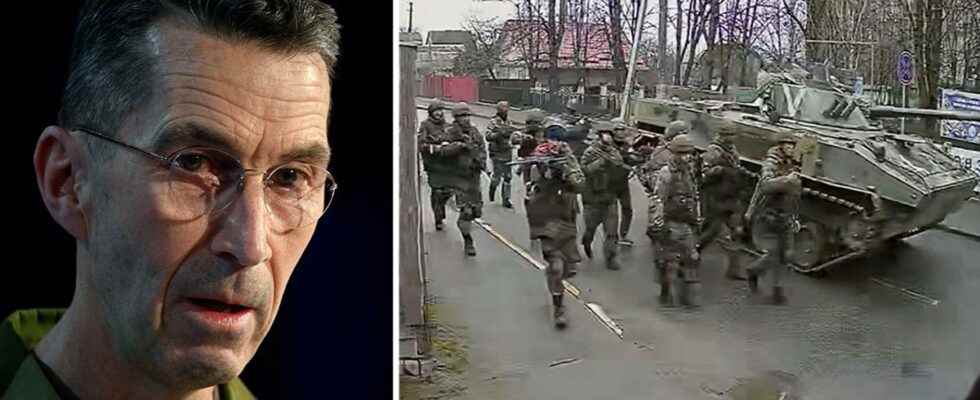Published: Just now
THE SEAL. ÖB Micael Bydén had expected more Russian provocations after the NATO application.
But he is prepared for the situation to change quickly.
– It can start any day, he tells Aftonbladet.
Before the decision to apply to NATO, the Swedish Armed Forces warned that Russian activity could increase in the immediate area.
Commander-in-Chief Micael Bydén has pointed out several areas where Russia could try to influence Sweden, but he is surprised at how few markings Russia has actually made.
– We said that there was a risk that they would indicate that they do not like this. It doesn’t have to be conventional military capability or units near the border, it can also be tough rhetoric, influence operations, cyber operations, he says and continues:
– There are elements of that even if we expected more. This is something we are following, but just because it hasn’t been at the level we expected doesn’t mean we are renouncing the possibility, it could start any day and we are prepared for that. We do not rule anything out.
“Unable to increase speed”
With the accession to NATO, the demand on the Swedish defense increases. The refurbishment is in full swing and ÖB admits that the situation is strained.
– It’s about prioritizing all the time. It is not possible to increase the speed and pour in more tasks, balance is needed. We prioritize what is not optional and needs to be in place, it may be at the expense of an exercise or training. But it is obvious that things are going hard.
At the same time, integration with NATO is underway, where Sweden will join the joint missile defense, air patrol over the Baltics and also prepare to be able to send units to the Baltic countries.
A task that ÖB welcomes.
– These parts are things we can do early on from the day we become members. We already have air patrols over our territory and now we will cooperate in “Baltic air policing”. The same applies to ground connections. They could be in the Baltics, but don’t have to be. We must remember that NATO’s eastern flank is long so it could be in other places as well.
“Our biggest challenge”
How big a challenge is it to build up a defense at home while preparing to be able to support NATO allies abroad?
– You can have different perspectives on that. On the one hand, we have worked so closely with NATO for many years with exercises and training activities and then we have been in sharp operation in Afghanistan. We know each other, he says, adding:
– At the same time, you have to be honest, we are a fairly small organisation. There is a high ambition, but it is not only about finances and financing. They add the integration into NATO, but it is the same people who will do this. Educating more people also takes time and that is our big challenge. It is about recruiting enough people and that those who remain in the organization can endure over time. That’s where the challenge lies.
